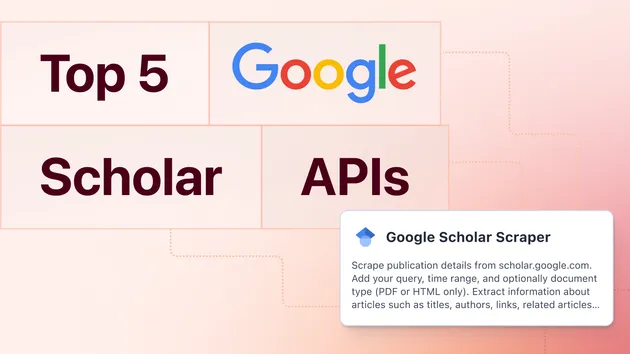Semantic Scholar Search Scraper
Pricing
$19.99/month + usage
Go to Apify Store
Semantic Scholar Search Scraper
Scrape academic papers from Semantic Scholar by keyword search, with automatic pagination and comprehensive research data extraction.
📚 Semantic Scholar Search Scraper
This actor allows you to scrape academic papers from Semantic Scholar by providing a search keyword. It automatically handles pagination and extracts comprehensive research paper information including titles, authors, citations, abstracts, publication details, and more.
Features
- Keyword-based Search: Extract academic papers by providing search keywords or phrases
- Automatic Pagination: Automatically scrolls and loads more papers until reaching the end or max items limit
- Comprehensive Research Data: Extract detailed information about each paper including:
- Paper title and abstract
- Author information
- Publication year and venue
- Citation counts and influential citation metrics
- Paper IDs (Semantic Scholar, DOI, ArXiv, PubMed, etc.)
- Field of study classifications
- TL;DR summaries (when available)
Input Parameters
| Field | Type | Required | Description |
|---|---|---|---|
keyword | string | Yes | Keyword or phrase to search for |
maxItems | integer | No | Maximum number of papers to fetch (default: 100) |
proxyConfiguration | object | No | Proxy settings for the crawler |
Output
The output is a list of research paper objects, each containing:
keyword: The search keyword usedpaperId: Semantic Scholar unique paper IDtitle: Title of the research paperabstract: Abstract/summary of the paperyear: Publication yearcitationCount: Number of citationsinfluentialCitationCount: Number of influential citationsauthors: List of authors with their informationvenue: Publication venue (journal/conference)publicationVenue: Detailed publication venue informationpublicationTypes: Types of publication (e.g., JournalArticle, Conference)fieldsOfStudy: Academic fields the paper belongs tos2FieldsOfStudy: Semantic Scholar's field classificationspublicationDate: Full publication datejournal: Journal information (name, volume, pages)externalIds: External identifiers (DOI, ArXiv, PubMed, etc.)url: Link to the paper on Semantic ScholaropenAccessPdf: Link to open access PDF (if available)tldr: Auto-generated summary (if available)isOpenAccess: Whether the paper is open accessreferenceCount: Number of references in the paper
Example output:
Use Cases
- Academic Research: Find relevant papers for literature reviews and research
- Citation Analysis: Track paper citations and influence metrics
- Trend Analysis: Identify research trends and emerging topics
- Researcher Discovery: Find experts and authors in specific fields
- Publication Monitoring: Monitor new publications in your field of interest
- Data Collection: Build datasets for bibliometric analysis
- Knowledge Graph Construction: Extract structured data for academic knowledge bases
Start exploring academic research on Semantic Scholar today!




